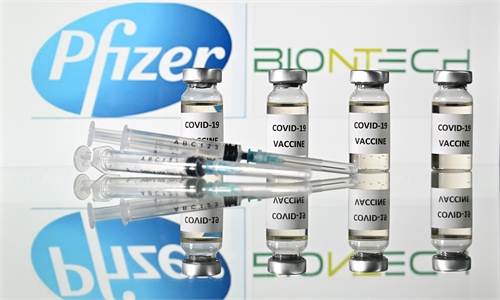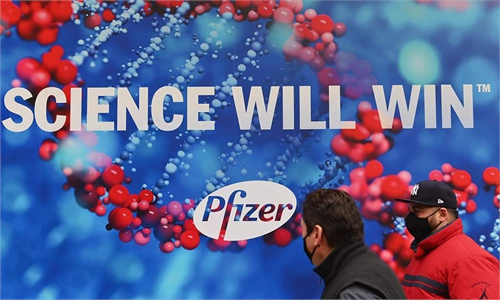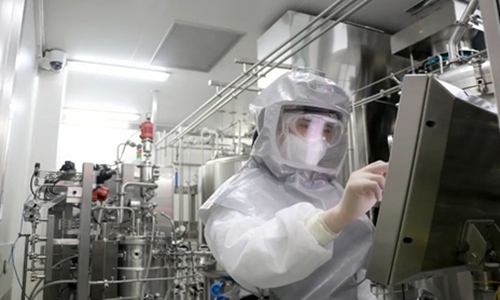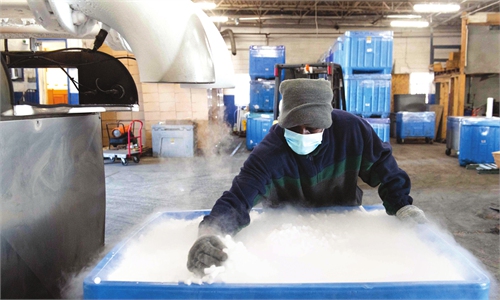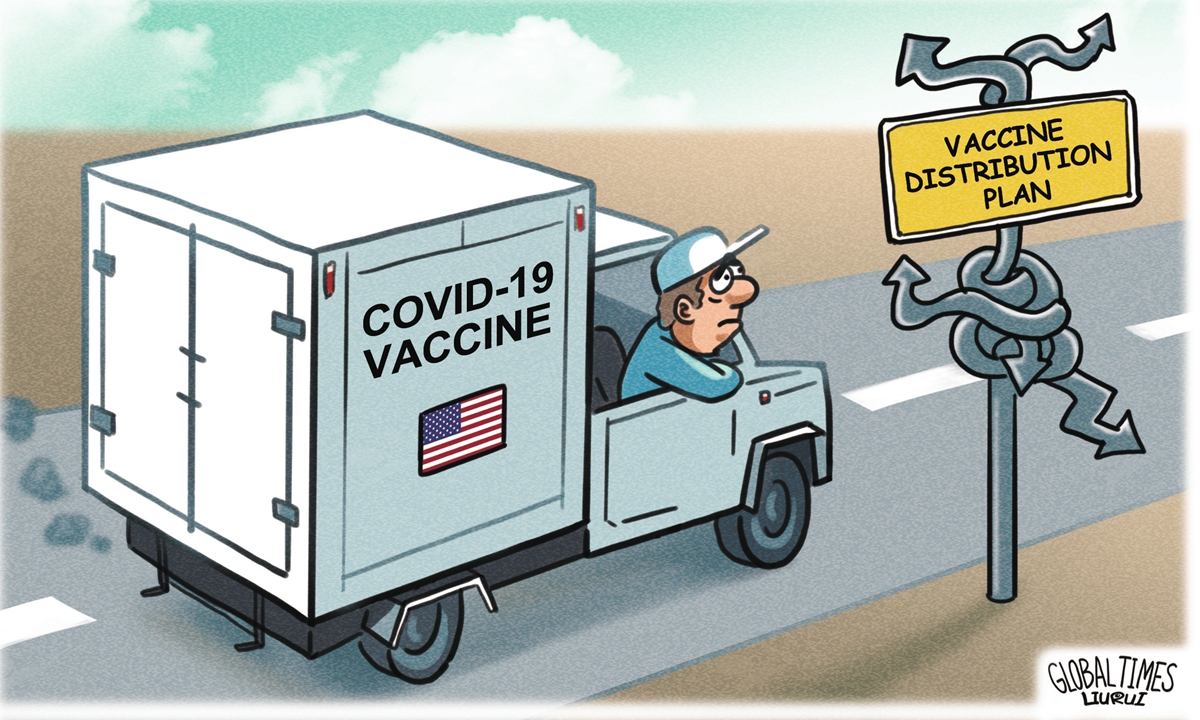
Illustration: Liu Rui/GT
The first batch of COVID-19 vaccines started to arrive in US states on Monday, carrying hopes of containing the year-long epidemic that has killed nearly 300,000 people in the US. However, not only do public health experts believe the effect of the vaccinations will be very limited before the new US administration takes office, there is also a flurry of doubts regarding vaccine output, distribution, and efficacy that are growing in the country.
Robert Redfield, director of the US Centers for Disease Control and Prevention, revealed that the first vaccinations are expected to be given on Monday.
The US Food and Drug Administration (FDA) on Friday gave the green light for emergency use for the Pfizer-BioNTech COVID-19 vaccine.
US Army General Gustave Perna, who is close to the vaccination project, said on Saturday that high-risk healthcare workers and elderly people will be the first to receive vaccinations, Reuters reported. CNN reported that White House officials will also share the limited vaccine supply ahead of the general public but the plan was later reversed by President Donald Trump amid wide criticism.
CNN said that both Pfizer and Moderna together can only supply 40 million doses by the end of 2020 at a maximum, which will cover only 20 million out of 24 million healthcare workers and people in long-term care homes.
If capacity fails, the US faces the dilemma of giving one shot per person to expand the number of vaccinations, or sticking with a second booster shot, Chen Xi, an assistant professor of public health at Yale University, told the Global Times.
According to US media, US government officials plan to hold back the second shot to ensure a sufficient supply of the first dose. But experts believe that's not the best way to make full use of the limited amount.
It is unclear how long the antibodies from Pfizer's vaccine will last, and it is not yet known whether people who receive one shot of the vaccine are still likely to contract the coronavirus or spread it to others, Chen said.
Experts believe that the effect of the vaccine will be very limited until the new US administration takes office in January 2021.
"If Biden can achieve his short-term goal -- distributing 100 million vaccine doses in his initial 100 days in office -- and at least 50 percent of Americans are willing to get vaccinated, the epidemic could be brought under basic control in the country by the end of June 2021. Ideally, herd immunity will be achieved by late August, when two-thirds of the US population will be vaccinated," said Chen.
However, if the Biden administration fails to reach the goal and wastes the summer season, when the virus is less active, the US epidemic could drag on into the fall and winter of 2021, or even 2022, said Chen.
Public concerns about the side effects of Pfizer's vaccine and unfair distribution are also looming.
According to CNN, such concerns are potential causes of the low vaccination rates that the Biden administration would not want to see.
Who should be the next group to be vaccinated after healthcare workers is being discussed, as "a big chunk of Americans fall into one high-risk group or another."
Tao Lina, a Shanghai-based vaccine expert, told the Global Times that the willingness of Americans to be vaccinated may be a big problem for the Biden administration.
"Cohesion within the US is weakening… An adverse reaction or a death can be hyped by the media, and may halt the vaccination program," Tao said.

